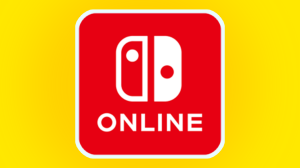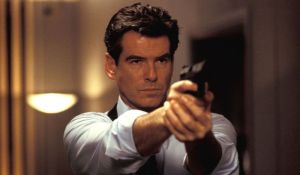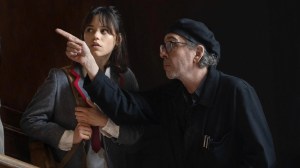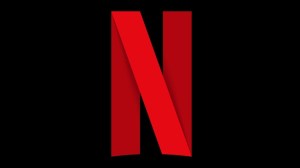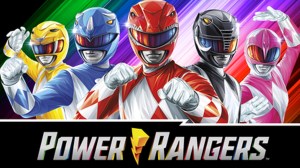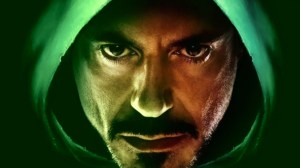When Artists, Writers, and Artisans — AWA, the company co-founded by former Marvel staffers Bill Jemas and Axel Alonso with digital media veteran Jon Miller — launches its first wave of comic book titles later this year, one of the standouts will be American Ronin from writer Peter Milligan (Human Target, Detective Comics) with artist ACO (Constantine, Nick Fury). The publisher will feature both a shared universe, overseen by a creative committee including J. Michael Straczynski and Reginald Hudlin, and stand-alone comics. Creators will have a stake not just in the comics they create but in the company as a whole, in what has been described as a return to the “United Artists” model from the film industry.
Videos by ComicBook.com
In American Ronin, per the official synopsis, “War is over, democracy an illusion, real power now lies not with nation states but huge corporations engaged in a silent war for global domination. Their number one weapon: highly-skilled, technologically-enhanced operatives trained since childhood to pledge their allegiance to the corporate flag. But what happens when one such operative breaks free of his mental chains and decides to bring the whole system down? Can one ‘Ronin’ make a difference?” Milligan joined ComicBook.com to discuss the series, which will hit the stands later this year from AWA.

There is no shortage of people who are looking to work with you. What’s the attraction of working with AWA?
Well first of all, first and foremost, I had a really great relationship with Axel Alonso when Axel worked for Marvel comics, and at DC before then, and so I’ve always had a very good, and a creative, and fruitful relationship with Axel. So when Axel talks about potentially doing a story, I’m really listening.
And of course, if I can expand slightly, when Axel told me the makeup of AWA, and what his plans were for this company, I thought it was really an opportunity and a great honor to be on the ground floor and to be part of this, what I think is a really interesting movement.
Is this a book that you’ve actually had kind of in the back of your head for a while? Or is this a new thing that came up post deciding to work with Axel?
Thematically I’ve been interested in writing a story on this theme. The theme of giant corporations running the world and democracies being a bit of a sham, or what kind of gives you a Neoliberal hegemony of the entire world and of how they might control the world. So kind of, if you like, the tagline: Business is War and War is Business. So I’ve been knocking the idea of something like that, so I think it’s just so contemporary and when I look around…it’s what I see.
When I spoke to Axel, things came more into focus, in terms of the particular kind of story that we wanted to tell, which would explore the themes of big corporations, to see where does the individual fits within that huge corporation. So that’s what this story is.
That’s a theme that becomes more and more kind of intimate all the time because these massive corporations, now through social media, are monitoring essentially every movement that people make. Is this one of those themes that you feel like, even as you’re writing the book, it’s changing?
Yes, but I guess because this story is set in some fictional very-near future…most stories about the future, they’re actually about the present, and for sure, because it’s set slightly in the future, it’s slightly future-proof about changes that are happening in the world. But definitely I think we can see, even when there’s a huge financial crisis, how often impotent our governments are and often how when push comes to shove, more and more, it’s huge corporations and mega or pan-corporations who have rushed right over the old idea of boundaries. It’s almost like that stuff is kind of moribund and that stuff doesn’t mean anything anymore, and I was interested in the idea of a super-elite who strides around the world, for whom our national boundaries are nothing, and who control the world from the background. I think that a lot of stories that are supposed to be about the future, they’re really about the present, and I think that that is kind of how I see this world at the moment.
Obviously, added into this story is the idea of these agents or Ronin, and that’s what gives our story its spice and it’s a way of kind of shaking up this spice to how the world is going.
What can you tell me about the look of this book and how that came together?
Well when Axel kind of showed me ACO’s work, I was really excited. It reminded me a lot of the early work I did with Human Target. What I really loved about is how it can be so kind of graphically interesting and graphically creative and the same time, really nail the characters and the characterization. The artwork I’ve seen so far of this book has just sensational. So yes, hopefully whatever I’ve written, whatever standard that is, it’s been really elevated by the artwork on this book. So I’m really excited about this book; I think it’s something really special.
You know the comics market as well as anybody else. If it isn’t a licensed, existing property, people don’t know what to make of it all the time. So what’s your pitch when you’re talking directly to fans or retailers?
Well, it’s about a world where the corporations run everything, but the hero is someone who is trying to break away from there. It’s someone who, for reasons that we will discover, has left the organization, or the corporation, that not only paid his wages but also adapted his brain slightly. They turned him into a killer, and he’s broken away from there, and now he turns his formidable skills against those who once controlled him. He knows how the corporations operate, he knows where their leaders live, and he wants to make them pay for what they’ve done to him. So, I wrote this story so that even though you can actually think it might be about corporations and the really big ideas, at the heart of it, there still is a new story where we have a character who we care about and we’re interested in, and I think that that’s what this story provides, and I think it’s about a single person going up against huge corporations, and I think that’s something that which we would like to see.
You’re going to have the contingent of people who is like, “It’s comics. Shut up, and entertain me.” Do you think that making a book that makes these issues personal, makes it easier to tackle these issues without that part of the audience completely tuning out?
Well yeah, I mean, of course it’s got to be entertaining, it’s got to be gripping, and you have to really care and give a damn about what’s going on. That’s page one, of course. That doesn’t mean to say that therefore it can have no subtext, therefore it can’t have thematic weight. I think that you need both, to really compete, you need both. If you’re just writing a story about how the corporations control the world, and that’s all it is, it’s not a story, that’s a treatise. So I think that the idea of a story, is to do a human story about human people and how they fit into these huge corporations and these huge amalgams of money and power, and that’s what our guy is.
And what I really love about our superhero, or Ronin, or hero…in all of the comic book worlds where a lot of super powers are very aggressive and are very physical, perhaps thinking, the power of flight, the power to blow things up, the power to destroy things. Our guy’s special ability, his unique ability… The corporation that he worked for, when he was very young, they operated on his supramarginal gyrus, which the part of the brain that controls empathy. And that means the Ronin can, by getting small traces of DNA from the targets, understand and read and really get under the skin of the person who he’s tracking, and with his dreams, he can pull his thoughts, he can have pure empathy for this person. Which obviously can give him a raw edge if he’s trying to kill him, but also an edge if he’s trying to completely understand him.
I really like the “soft” power that that gives our hero, and it makes our hero really stand out and really different in a world where so many of these, as weapons or powers, are aggressive and blow-’em-up, shoot-’em-up kind of things.
A lot of books that are in this same vein, it’s almost the opposite — that exceptional killers are totally detached from humanity. So to me the that his “power” is empathy makes him stand out among this subgenre because it’s so different from the personality that we’re used to seeing.
I really think so. At the heart, this book is about character. At the heart, it is someone whose ability is to understand character. And we discover more things about this person’s own character, which has enabled him to walk through this, to walk though this dangerous environment and maintian and retain his own sense of self. It sounds a bit heavy, but nothing wrong with that. I think that those aspects to our guy’s character, which we will discover as the story progresses, which makes us understand him more, and understand how he (and not so many others) have managed break away from the corporations. And what maintains that piece of him, which is humor, and which is succinct and separate from the way that the corporations try to control him.
And of course there’s lots of amazing, interesting fight stuff and tracking stuff, and so it works as a spy story, if you like, a futuristic spy story, but at the same time, works as an emotional and character and slightly offbeat kind of story as well.
A lot of these stories about corporate power and about quasi-dystopian futures, everything’s kind of bleak, but from the sound of it, it sounds like this book is a bit more hopeful on some level.
It operates on a human level, and I think that’s what I was interested in doing. The story of the humans. Why do I have to tell the stories when we tell stories to ourselves? So I think that the Ronin, who we discover and we discover more about him, he’s very interested in people. And I think that the characters in this story are really important, even the corporations. They can seem like these monoliths of power, even though they’re made up of human people. They’re made up of humans with failings, with dreams, with wishes, with loves. And I think that’s what’s interesting about all these huge corporations and these huge power monoliths, that they are still made up of people, and people are weak, and people have belongings, and people have bad dreams. And our guy can tap into that stuff.


